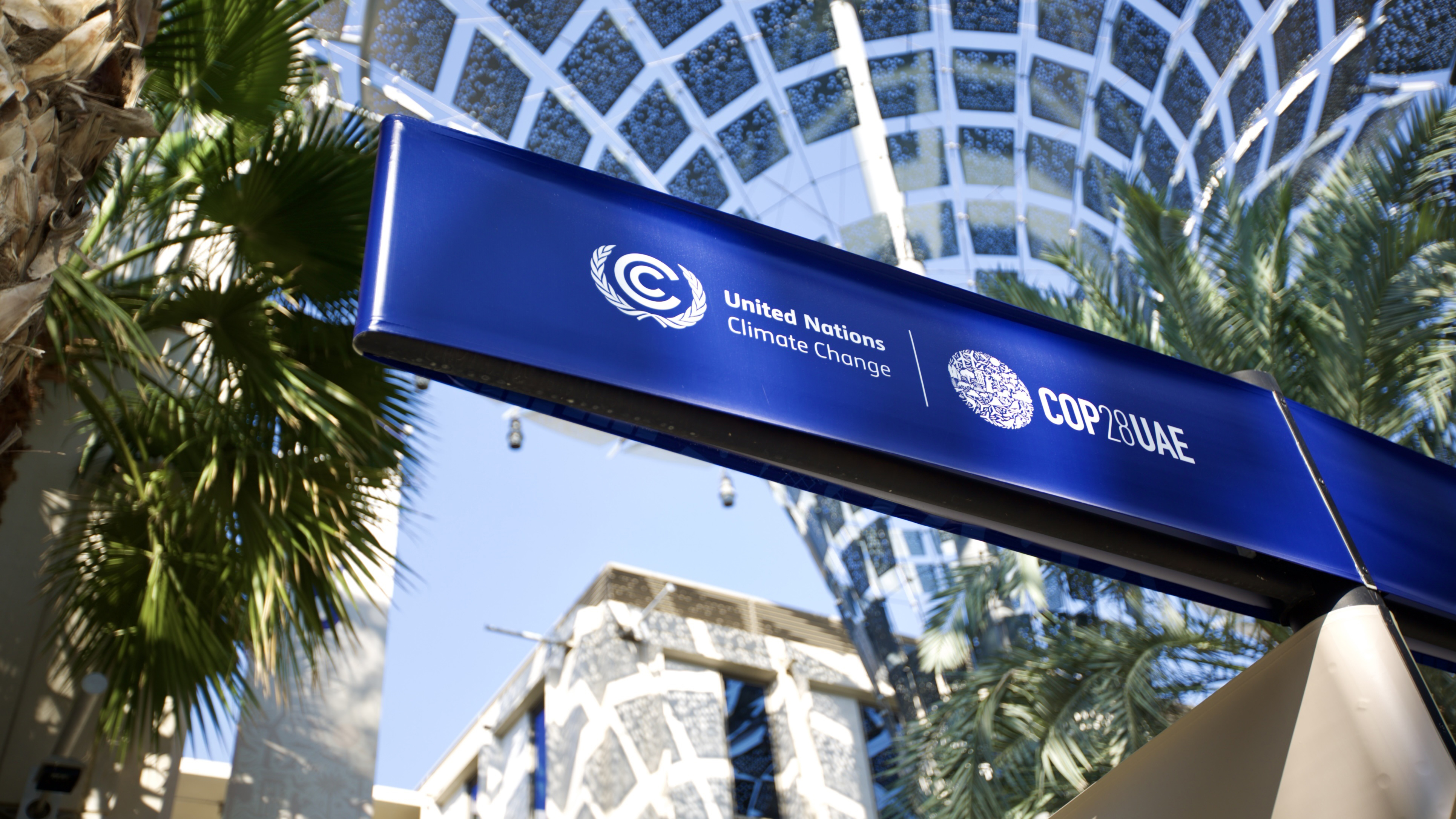After Pledge to Transition Away From Fossil Fuels, Governments Must Now Follow Through
COP28 also yields commitments on financing and fulfilling the promise of the Paris Agreement

As the last delegates vacated Expo City Dubai, the “mini-city” where the United Arab Emirates hosted the 2023 climate summit, it was clear that the event—the 28th meeting of the Conference of the Parties to the United Nations Framework Convention on Climate Change, or COP28—marked important progress on global climate action. For the first time, nearly 200 nations agreed to transition away from fossil fuels and ramp up financing to make the transition a reality. Of course, the ultimate success of this historic decision depends on what actions the governments take at home, and how quickly they are willing to make good on their commitments.
The main focus of this COP was on assessing progress toward implementing the landmark 2015 Paris Agreement on climate change. Most notably, governments that gathered in Dubai held the first global stocktake (GST), in which they evaluated collective progress toward achieving the mitigation, adaptation, and finance goals of the Paris Agreement. That process yielded the first commitment by nearly 200 governments to triple renewable energy capacity globally by 2030, double the global average annual rate of energy efficiency improvements by 2030, and achieve net zero greenhouse gas emissions by 2050.
How to pay for climate change mitigation and adaptation was a central theme in the negotiations—and in the final decision that governments agreed to. Leading up to and during COP28, governments and private sector actors committed to contribute around $50 billion in new financing, with pledges coming from both developed and developing countries. That total includes a $30 billion impact investing fund announced by the host country.
Importantly, governments agreed to work over the next year on a new climate finance goal. An existing goal, which calls on developed countries to provide $100 billion per year, is set to expire in 2025. Governments also agreed to launch a “loss and damage” fund with a goal of driving around $650 million in new commitments toward countries that are particularly vulnerable to climate impacts. Overall, this marked important progress on climate finance, yet a gap of more than $3 trillion remains between how much money experts say is required and what has been mobilized.
In addition to progress on emissions reductions and finance, governments agreed on next steps for the global goal on adaptation (GGA)—the cornerstone adaptation objective under the Paris Agreement and a priority for developing countries hardest hit by climate change. Adaptation refers to how governments and communities adjust in the face of climate change; mitigation refers to actions they take, such as reducing emissions, to reduce the severity of climate change. The newly adopted GGA framework consists of a set of targets—affecting water and food security, human health, and ecosystems and biodiversity, among others—that governments agreed to achieve by 2030.
While this decision offers some degree of progress on adaptation, governments will need to raise their ambition for the GGA in 2024 to ensure that countries are prepared for a range of extreme events, from larger and more intense droughts and wildfires to heavier flooding and soaring temperatures. What’s more, adaptation continues to be underfunded worldwide—the U.N. Environment Programme estimates the gap at US$194 billion to $336 billion per year.
In both the GST and GGA decisions, governments recognized the critical role that nature plays in mitigating and adapting to climate change—for example, the significant capabilities of coastal wetlands to sequester and store carbon and to buffer storm surges. While the mitigation benefits of nature-based solutions are no substitute for the top priority of reducing greenhouse gas emissions, they have proved helpful in the fight against climate change.
Like many prior COPs, this one produced encouraging commitments and plans. But with climate change driving an ever-increasing slate of alarming effects around the world, governments must now follow through—fully and quickly—on their promises. With so much at stake, the global community cannot afford to lose momentum now.
Courtney Durham Shane is a senior officer and Ellen Ward is an officer with Pew’s conservation support team.








